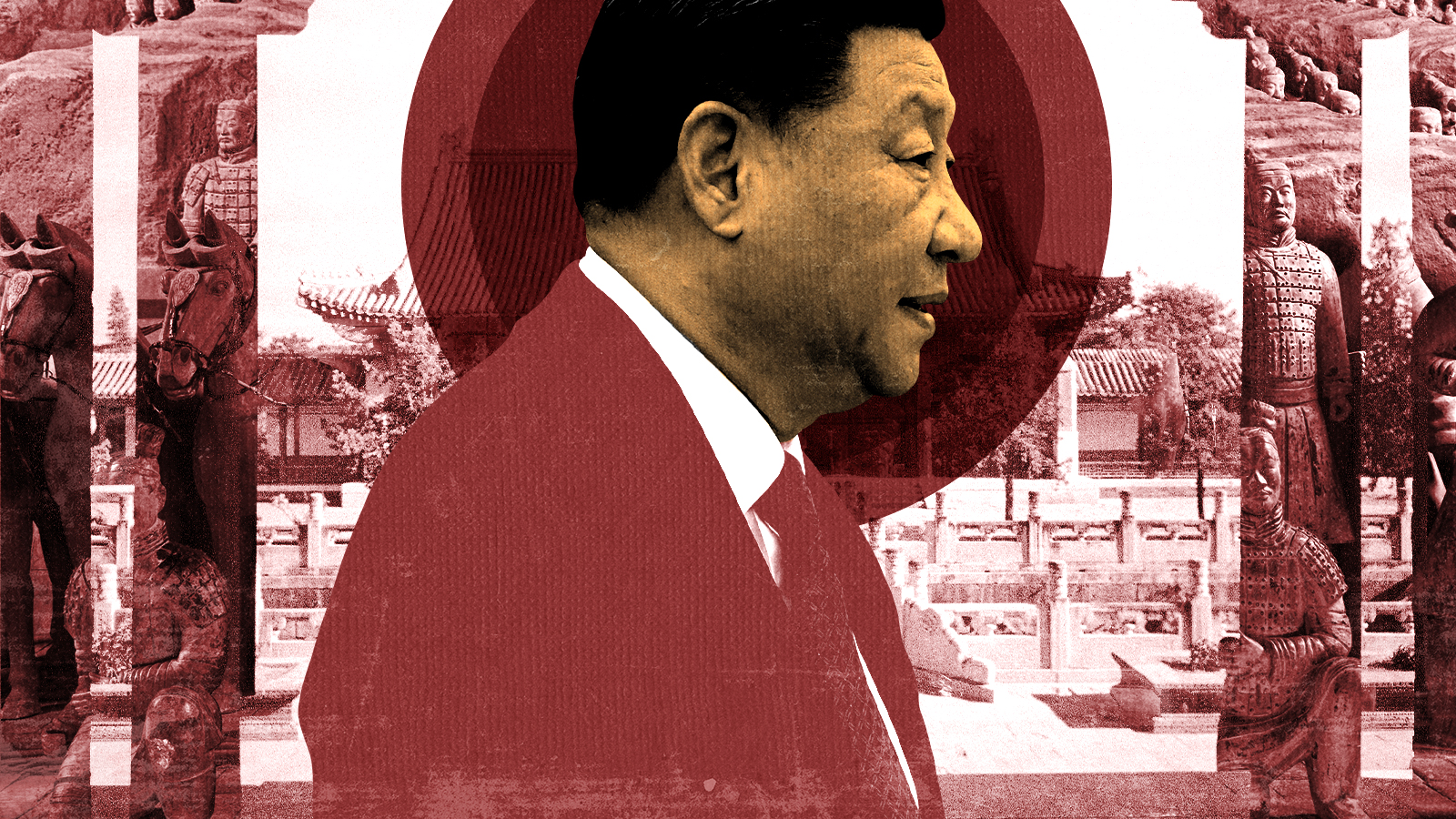What the CCP and CRT critics have in common


A free daily email with the biggest news stories of the day – and the best features from TheWeek.com
You are now subscribed
Your newsletter sign-up was successful
Chinese President Xi Jinping and the ruling Communist Party have a political agenda for their country's history.
This week, the party is expected to adopt a resolution setting out the official, triumphalist version of "the party's 100-year history as a story of heroic sacrifice and success," The New York Times reports. "Traumatic times like famine and purges will fall further into a soft-focus background — acknowledged but not elaborated."
Naysayers aren't welcome, because Xi "sees that competing narratives of history are dangerous," Joseph Torigian, an assistant professor at American University, told the Times. For example, Xi reportedly believes the Soviet Union fell because it allowed its history of purges, imprisonment, and exile to become public and undermine faith in the ruling party.
The Week
Escape your echo chamber. Get the facts behind the news, plus analysis from multiple perspectives.

Sign up for The Week's Free Newsletters
From our morning news briefing to a weekly Good News Newsletter, get the best of The Week delivered directly to your inbox.
From our morning news briefing to a weekly Good News Newsletter, get the best of The Week delivered directly to your inbox.
It all sounds kind of familiar, doesn't it?
Granted, China isn't having battles over critical race theory, and there are substantial differences between the CCP's adoption of a happy-face historical narrative and American arguments over CRT. (I'm using "CRT" here not in its academic sense, but as a catchall term for the controversies over how race and history are taught in U.S. schools.) Crucially, dissenters in China are often imprisoned or hassled into silence, while the American debates remain fairly free and fierce.
But the CCP and the anti-CRT crowd do share a sense that "competing narratives of history are dangerous." To take just one example: The 1619 Project, which places slavery at the center of American founding, might have its historical flaws, but its real sin is that it recasts the country's history in a much less flattering light. "America is a great and noble country founded on the proposition that all mankind is created equal," Sen. Tom Cotton (R-Ark.) said last year in a rebuke of the project.
Cotton's conservative allies have openly worried about the ideological threats created by the alternative history. Former Louisiana Gov. Bobby Jindal (R) last year described the project as part of a "power grab" intended to "entirely restructure the nation's economy, laws, and politics." Naturally, GOP-led states like Texas and Florida have banned it from public schools.
A free daily email with the biggest news stories of the day – and the best features from TheWeek.com
By now it's something of a cliche to note that "who controls the past controls the future," but it remains a salient point. Xi Jingping clearly agrees — and so, it seems, do America's anti-CRT conservatives.
Joel Mathis is a writer with 30 years of newspaper and online journalism experience. His work also regularly appears in National Geographic and The Kansas City Star. His awards include best online commentary at the Online News Association and (twice) at the City and Regional Magazine Association.
-
 Political cartoons for February 22
Political cartoons for February 22Cartoons Sunday’s political cartoons include Black history month, bloodsuckers, and more
-
 The mystery of flight MH370
The mystery of flight MH370The Explainer In 2014, the passenger plane vanished without trace. Twelve years on, a new operation is under way to find the wreckage of the doomed airliner
-
 5 royally funny cartoons about the former prince Andrew’s arrest
5 royally funny cartoons about the former prince Andrew’s arrestCartoons Artists take on falling from grace, kingly manners, and more
-
 Epstein files topple law CEO, roil UK government
Epstein files topple law CEO, roil UK governmentSpeed Read Peter Mandelson, Britain’s former ambassador to the US, is caught up in the scandal
-
 Iran and US prepare to meet after skirmishes
Iran and US prepare to meet after skirmishesSpeed Read The incident comes amid heightened tensions in the Middle East
-
 Israel retrieves final hostage’s body from Gaza
Israel retrieves final hostage’s body from GazaSpeed Read The 24-year-old police officer was killed during the initial Hamas attack
-
 China’s Xi targets top general in growing purge
China’s Xi targets top general in growing purgeSpeed Read Zhang Youxia is being investigated over ‘grave violations’ of the law
-
 Panama and Canada are negotiating over a crucial copper mine
Panama and Canada are negotiating over a crucial copper mineIn the Spotlight Panama is set to make a final decision on the mine this summer
-
 Why Greenland’s natural resources are nearly impossible to mine
Why Greenland’s natural resources are nearly impossible to mineThe Explainer The country’s natural landscape makes the task extremely difficult
-
 Iran cuts internet as protests escalate
Iran cuts internet as protests escalateSpeed Reada Government buildings across the country have been set on fire
-
 US nabs ‘shadow’ tanker claimed by Russia
US nabs ‘shadow’ tanker claimed by RussiaSpeed Read The ship was one of two vessels seized by the US military
